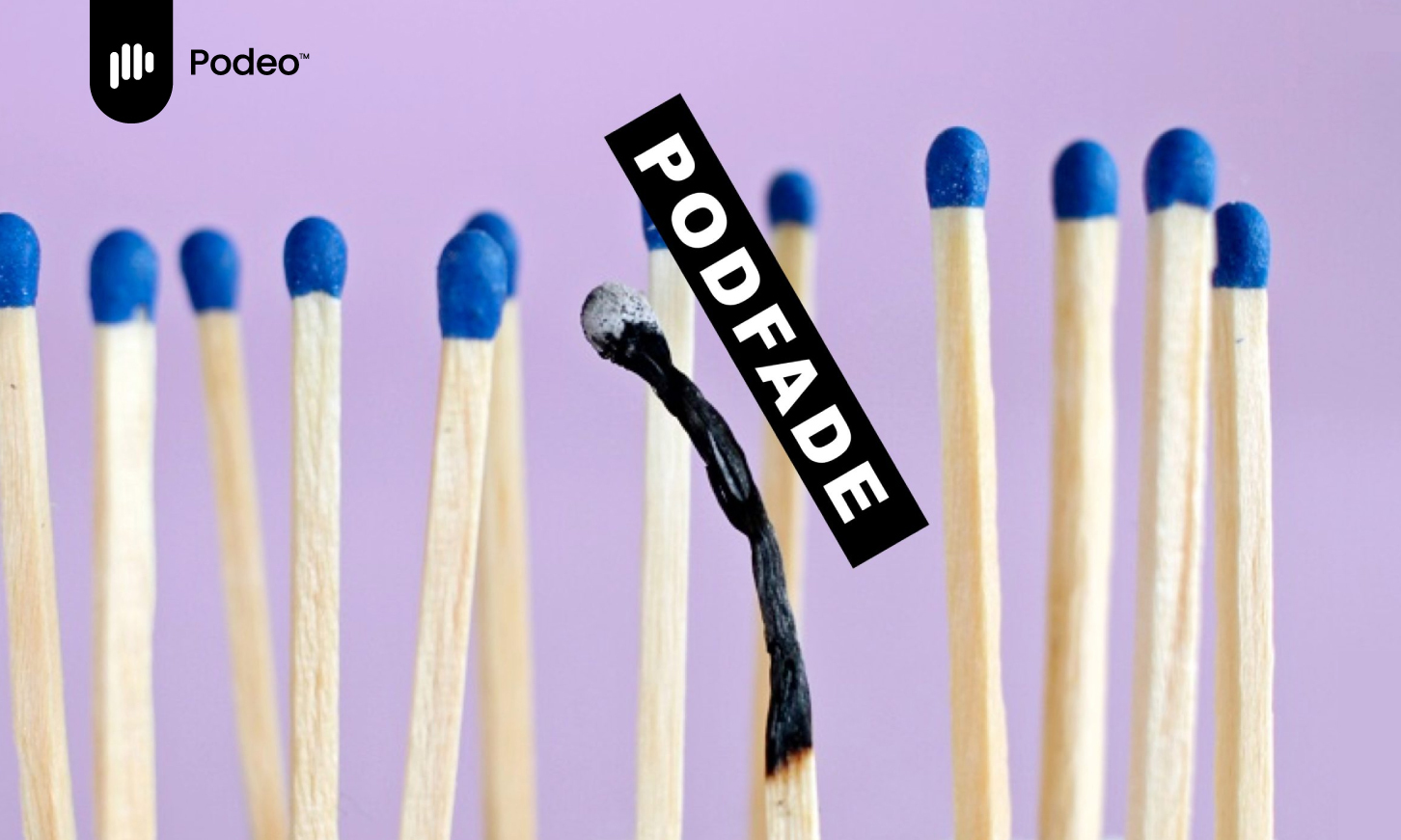Podfade: What It Is and How to Avoid It


One term can invoke fear into every creator’s heart: “podfade.” It means the gradual decline and eventual ending of a podcast. Normally, it happens around episode seven but can occur any time if a podcaster needs to be more careful. Knowing what pod fade is and how to avoid it should be paramount for every serious podcaster who intends to have a long-lasting, successful podcast.
What Is Podfade?
Podfade happens when a podcast starts strong but slowly starts losing that momentum, posting less regularly, and then eventually giving up. This usually happens for some combination of reasons: from lack of time to dwindling interest or even having unrealistic expectations. Many podcasters shove off with great fanfare, only to hit a wall dealing with the incredible demands of turning out funny, interesting, or informative content week in and week out.
Common Causes of Podfade
- Burnout: The pressure of producing quality episodes regularly may cause burnout, especially when all production tasks, from research through recording and editing to marketing, are done by a single podcaster.
- Lack of Time: Many podcasters have started a podcast as a hobby or just a side project that grew. Balancing podcasting with other life responsibilities is no mean feat.
- Unrealistic Expectations: New podcasters often hope for rapid growth and monetization. When these expectations are not met, motivation can wane.
- Content Fatigue: Running out of ideas or feeling that the content is becoming repetitive can lead to a loss of interest.
How to Avoid Podfade
Be strategic, and be sustainable in your mindset. Here are some tips that can get you on and continuing with your podcast:
- Preplanning: You should plan several weeks’ worth of batches of episodes for your podcast in advance of the launch. This type of pipeline lessens the stress related to coming up with ideas right on the spot.
- Set realistic goals and celebrate small victories that can motivate you. Yes, it does take time to build an audience.
- Consistency over frequency: It is better to post consistently at a practical rate than to overcommit and lose your audience. If you can’t do it every week then commit to a schedule, whether that be bi-weekly or even monthly posting.
- Batch Production: Record a few episodes in one session. The amount of time it saves you in the background work is huge, and you are always ahead of yourself with content ready to go live.
- Outsource the editing or social media management whenever possible to free up your time to create content.
- Engagement: This keeps you engaging with your listeners through social media, email, or in-person events. Their responses and encouragement are going to be the ticket that will help get you up and running. Literally.
- Self-Care: Pay great attention to self-care. Take the breaks you need to take, and if you’re finding the show—any show, for that matter—a bit too much, put it by the wayside until you feel otherwise.
Conclusion
Although this is a common barrier along the podcasting journey, it is by no means impossible. Knowing its causes and how to implement consistency and motivation strategies, keeping your podcast active and healthy is quite within reach. Keep in mind that this is a marathon, not a sprint. The inability to come up with a well-thought strategy to ensure sustainability and proper planning is what will end one’s career in podcasting through podfading.





